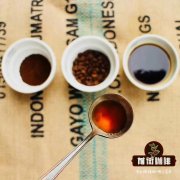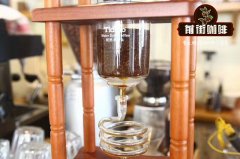Having obvious floral and fruity aromas is Ethiopia's unique coffee flavor. Know Ethiopia's best coffee brand.

Professional coffee knowledge exchange more coffee bean information please follow the coffee workshop (Wechat official account cafe_style)
Ethiopia has an almost legendary status, not only because it is the "birthplace" of Arabica coffee, but also because it is different from most coffee-growing countries, coffee is not through the colonization of exotic cash crops. Growing, processing and drinking coffee has been part of the local way of life for centuries, and it was first discovered that coffee grown in the forest was gradually artificially grown for household use and commercial sale.
From an outsider's point of view, Ethiopian coffee has a huge and complex cultural, political and economic impact. Ethiopian coffee has amazing genetic diversity, and almost 99% of coffee varieties can be found in Ethiopia.
Another unique feature of Ethiopian coffee is the very high domestic consumption, as coffee plays a very important role in the daily life of the Ethiopian people. Of the 6.5 million bags produced in the country, about 3 million bags are consumed domestically and another 3.5 million bags are exported.
Most coffee growers in Ethiopia belong to small farmers, most of which cover less than 1 hectare. There are large private coffee farms, as well as cooperatives of small and medium-sized farms, where growers produce only a relatively small amount of commercial coffee raw beans.
Coffee is produced in several ways in Ethiopia. In large private estates, coffee picking, processing and shelling are usually done on the estate. Other small farmers will send the fresh fruits of their coffee to the nearest processing station. There their fresh coffee fruit is sold at a certain price and mixed with the fresh coffee fruit of other farmers and processed according to the requirements of the processing station.
The flavor of Ethiopian coffee has different flavors due to a variety of factors, including varieties, treatment methods and the unique microclimate of micro-batch plots. The general experience is that sun-processed coffee has a more obvious taste of fruit and dark chocolate, usually with a bit of wine-like characteristics and a better thickness. The acidity of coffee processed by water washing is also more obvious.
Ethiopia is still a very important coffee exporter in the world, with the main producing areas of Sidamo Sidamo, Yegashev Yirgacheffe, Cochel Kochere, Hara Harar and Gima Djimma. Located in the south of Ethiopia, Sidamo, Yegashev and Kochel are the main producing areas of fine washed beans and are famous for their excellent fruit characteristics and delicate and elegant flavor.
Important Notice :
前街咖啡 FrontStreet Coffee has moved to new addredd:
FrontStreet Coffee Address: 315,Donghua East Road,GuangZhou
Tel:020 38364473
- Prev

What are the coffee roasters the difference between a semi-hot air roaster and a direct roaster
Professional coffee knowledge exchange more coffee bean information please pay attention to the coffee workshop (Wechat official account cafe_style) semi-hot air (Half Hot Air Roaster), as the name implies both the advantages of direct fire and hot air baking method. Van Guban, a German, improved and manufactured a barrel roaster in which hot air was introduced into the baking chamber through a small hole in the drum. 1907, Germany
- Next

Learn how to import coffee from Ethiopia what is the top variety of Ethiopian coffee
Professional coffee knowledge exchange more coffee bean information Please pay attention to the coffee workshop (Wechat official account cafe_style) in recent years Ethiopia has made efforts to implement the opening-up policy market economy and privatization policy have achieved remarkable results. As far as coffee is concerned, Ethiopian coffee cultivation plays an important role in agricultural products, as the Ethiopian government vigorously promotes coffee.
Related
- Beginners will see the "Coffee pull flower" guide!
- What is the difference between ice blog purified milk and ordinary milk coffee?
- Why is the Philippines the largest producer of crops in Liberia?
- For coffee extraction, should the fine powder be retained?
- How does extracted espresso fill pressed powder? How much strength does it take to press the powder?
- How to make jasmine cold extract coffee? Is the jasmine + latte good?
- Will this little toy really make the coffee taste better? How does Lily Drip affect coffee extraction?
- Will the action of slapping the filter cup also affect coffee extraction?
- What's the difference between powder-to-water ratio and powder-to-liquid ratio?
- What is the Ethiopian local species? What does it have to do with Heirloom native species?

